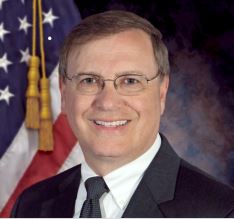January 6th Wasn’t an FBI Operation. And the Earth Revolves Around the Sun.
.jpeg?sfvrsn=6117c6bf_4)
It is “ludicrous” to believe, FBI Director Christopher Wray told Congress last summer, that “the violence at the Capitol on January 6 was part of some operation orchestrated by FBI sources and agents.” He is correct. It is an outrageous and nonsensical lie, propagated by scoundrels, for selfish gain. Yet, according to a recent Washington Post-University of Maryland poll, 25 percent of respondents think it is either “definitely” or “probably” true that FBI operatives “organized and encouraged” that attack.
Do one in four Americans really believe this nonsense? Apparently so, and that is depressing. But, examined from a different perspective, the fact that one-quarter of Americans are so wrong about something so important seems rather ordinary. Perhaps it would be useful to put this poll in context.
For instance, according to a Public Religion Research Institute-Interfaith America March 2021 survey, 15 percent of Americans believe that “the government, media, and financial worlds in the U.S. are controlled by a group of Satan-worshipping pedophiles who run a global child sex trafficking operation.” And, according to that same survey, 39 percent of Americans believe that the virus that causes COVID-19 was developed intentionally by scientists in a lab. Both propositions are similarly ludicrous.
Americans apparently relish conspiracy theories. That is neither good nor new. But even if we turn to the physical sciences—the stuff we ostensibly learned in school—we do not do all that much better as a nation.
In 2021, the Cleveland Museum of Natural History commissioned a poll to test basic knowledge about our solar system. More than one in four Americans (29 percent) did not know how long it takes the Earth to orbit the Sun. Among respondents with college degrees, a surprising 17 percent of respondents still got that question wrong.
The National Science Foundation (NSF) has routinely polled another question about our solar system, asking Americans whether the Earth revolves around the Sun or vice versa. In 2012, 26 percent of Americans, according to this survey, wrongly believed that the Sun revolves around the Earth. Six years later, according to the 2018 NSF survey, 28 percent of Americans believed that the Sun revolves around the Earth. Though we seem to be moving (statistically) in the wrong direction, at least we are doing a bit better than our European brothers and sisters. In 2005, 34 percent of those in the EU whiffed on the question. Our solar system, for those of you keeping score at home, is heliocentric.
Pew asked Americans in 2015 to distinguish between astrology and astronomy. More than a quarter (27 percent) could not do so. Similarly, the NSF asked Americans whether astrology was a credible science. In 1990, 35 percent of respondents said astrology was either “Very scientific” (6 percent) or “Sort of scientific" (29 percent). Moving in the wrong direction, by 2018, 39 percent of respondents said astrology was either “Very scientific” (6 percent) or “Sort of scientific" (33 percent). Astrology is pseudoscience. Astronomy is real science, and a spectacular science, at that.
Are we any better as a nation when it comes to law and governance? Not really.
An Annenberg survey in 2021 indicated that only 56 percent of Americans could name all three branches of the federal government; 20 percent could not name a single branch. A year later, the findings were worse. In 2022, Annenberg found that only 47 percent of Americans could name all three branches and that 25 percent failed to name any of the three.
Annenberg also found in 2022 that 26 percent of Americans could not name a single right guaranteed by the First Amendment to our Constitution and that less than 50 percent of all Americans knew that the Supreme Court has the final say on the constitutionality of a law passed by Congress and signed by the president.
Similarly, the Institute for Citizens & Scholars (formerly the Woodrow Wilson National Fellowship Foundation) reported in 2018 that about two in three Americans were incapable of passing the U.S. citizenship test. Of course, many Americans are citizens because they are naturally born to that status. But we should remember to be grateful—as a nation of immigrants—for the fact that so many people still aspire to U.S. citizenship, and prepare for and pass a test that otherwise eludes a large majority of Americans.
So, 25 percent of Americans think it is either “definitely” or “probably” true that FBI operatives organized the Jan. 6 attack on the Capitol? When you step back and look at what we “know” as Americans and what we do not know, this number—alarming as it may be—is not surprising. Indeed, it coincides with other data. Perhaps we should be grateful that it is only 25 percent.
This aphorism might capture it best: “It ain’t what you don’t know that gets you into trouble. It’s what you know for sure that just ain’t so.”



-2.jpg?sfvrsn=f979c73d_6)

